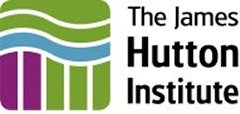 The James Hutton Institute
The James Hutton Institute
This page is no longer updated. The Macaulay Land Use Research Institute joined forces with SCRI on 1 April 2011 to create The James Hutton Institute.
Welcome to the first edition of Faunus.
Faunus is the newsletter of the Livestock Systems in Integrated Rural Development (LSIRD) network and will be produced twice yearly. The LSIRD network is funded by the European Commission for a period of 3 years with the objective of: developing a European network of researchers studying the role of livestock production systems in disadvantaged areas in relation to rural/development/agricultural policy, economic activity, domestic animal/environment interactions and landscape ecology.
At the moment, research in the area covered by LSIRD is fragmented, and a key aim of the network is to improve the integration of scientists working in livestock production systems, rural development, adding value to livestock products and environmental sciences in disadvantaged areas of Europe. This should increase the amount of high quality research being conducted in the area.
This aim will be achieved by the leaders within the network of the four areas described above: Dr George Zervas, Agricultural University of Athens, Greece; Dr Javier Martínez-Vassallo, INIA, Madrid, Spain; Dr Brian Revell, Scottish Agricultural College, Aberdeen, UK; Dr Thiérry Lecompte, Parc Naturel Régional de Brotonne, Normandy, France and myself, Dr John Milne, Macaulay Land Use Research Institute, Aberdeen, UK, as coordinator developing an integrated programme of activities.
These activities will include two conferences and four workshops, where the themes chosen have the aim of bringing together researchers from different disciplines working in areas covered by the LSIRD network. The first conference entitled "The role of domestic livestock systems for rural development in disadvantaged areas" will be held in Greece in January 1997. You will find details of the conference elsewhere in the newsletter. I believe that the Conference will help set the agenda for the Network and I invite you warmly to register to attend.
As well as the above meetings, the Network will undertake three feasibility studies on possible developments in livestock production systems to further rural development in disadvantaged areas and develop a database of researchers working in the area. An Internet site is now open, and I would encourage you to use the site to find out more about the LSIRDnetwork, to register as a member (no charge), and to contribute information about your own project to the database.
The LSIRDnetwork is organised by Jerry Laker, who can be contacted by telephone, fax and e-mail.
I look forward to working with you in the development of the LSIRD network.